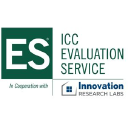EN 14617-6:2012
(Main)Agglomerated stone - Test methods - Part 6: Determination of thermal shock resistance
Agglomerated stone - Test methods - Part 6: Determination of thermal shock resistance
This European Standard specifies a method to assess possible modifications of agglomerated stones under the effect of sudden changes in temperature (thermal shock) by immersion in hot water.
Künstlich hergestellter Stein - Prüfverfahren - Teil 6: Bestimmung der Temperaturwechselbeständigkeit
Diese Europäische Norm legt ein Verfahren zur Beurteilung möglicher Veränderungen von künstlich hergestellten Steinen unter Einwirkung plötzlicher Temperaturwechsel (Wärmeschock) durch Eintauchen in heißes Wasser fest.
Pierre agglomérée - Méthodes d'essai - Partie 6: Détermination de la résistance au choc thermique
La présente Norme européenne spécifie une méthode d’évaluation d’éventuelles modifications de pierres
agglomérées sous l’effet de variations soudaines de la température (choc thermique) par immersion dans de
l’eau chaude.
Aglomeriran kamen - Preskusne metode - 6. del: Ugotavljanje odpornosti proti temperaturnemu šoku
Ta evropski standard določa metodo za ocenjevanje morebitnih sprememb na aglomeriranem kamnu zaradi nenadnih sprememb temperature (toplotni šok) s potapljanjem v vročo vodo.
General Information
- Status
- Published
- Publication Date
- 10-Apr-2012
- Withdrawal Date
- 30-Oct-2012
- Technical Committee
- CEN/TC 246 - Natural stones
- Drafting Committee
- CEN/TC 246/WG 4 - Agglomerated stones (JWG 229/246)
- Current Stage
- 9093 - Decision to confirm - Review Enquiry
- Start Date
- 05-Jun-2023
- Completion Date
- 11-Feb-2026
Relations
- Effective Date
- 18-Apr-2012
- Effective Date
- 28-Jan-2026
- Referred By
EN 15286:2013 - Agglomerated stone - Slabs and tiles for wall finishes (internal and external) - Effective Date
- 28-Jan-2026
- Effective Date
- 28-Jan-2026
- Referred By
EN 15564:2008 - Precast concrete products - Resin bound concrete - Requirements and test methods - Effective Date
- 28-Jan-2026
- Referred By
EN 15388:2008 - Agglomerated stone - Slabs and cut-to-size products for vanity and kitchen tops - Effective Date
- 28-Jan-2026
- Referred By
EN 15285:2008 - Agglomerated stone - Modular tiles for flooring and stairs (internal and external) - Effective Date
- 28-Jan-2026
- Referred By
EN 15388:2020 - Agglomerated stone - Slabs and cut-to-size products for vanity and kitchen tops - Effective Date
- 28-Jan-2026
Overview
EN 14617-6:2012 - Agglomerated stone: Test methods - Part 6: Determination of thermal shock resistance is a European Standard (CEN) that defines a laboratory method to assess the effect of sudden temperature changes on agglomerated stone by immersion in hot water. The standard is intended to evaluate thermal shock resistance for typical building uses (notably flooring and wall applications) and specifies conditioning, cycling, measurement and reporting requirements.
Key topics and technical requirements
- Scope: Measures modifications (visual, mass and mechanical) caused by repeated thermal shocks (hot oven → cold water immersion). Test temperature selected is 70 ± 5 °C (hot) and 15 ± 5 °C (water).
- Specimens: Two sets of at least 7 specimens selected from a homogeneous batch - one set for reference, one for cycling.
- Pre-conditioning and drying: Condition at (20 ± 5) °C for (24 ± 2) h; dry at (40 ± 5) °C to constant mass (constant mass = ≤ 0.1% difference between two weighings 24 ± 2 h apart).
- Thermal cycling procedure: One cycle = (18 ± 1) h in ventilated oven at (70 ± 5) °C, immediately followed by (6 ± 0,5) h submerged in demineralised water at (15 ± 5) °C. Repeat for 20 cycles. Specimens placed ≥ 50 mm apart; water level (60 ± 10) mm above specimens.
- Measurements: Visual inspection (colour change, swelling, cracking, scaling), mass before/after (m0, mf) and flexural strength before/after (Rf, Rsf) - flexural testing per EN 14617-2.
- Results: Express mean percentage change in mass (∆m) and mean percentage change in flexural strength (∆Rf,20). Include observation of all visible alterations.
- Apparatus: ventilated oven, cooled water tank with supports, accurate balance (±0.01% accuracy), desiccator, demineralised water, linear measuring device.
- Reporting: Full test report including specimen details, dates, dimensions, observed alterations, percentage changes, uncertainty, deviations and signatures.
Practical applications
- Quality control and production acceptance testing for agglomerated stone products.
- Product development and comparative testing of formulations/binders (cement, polymer).
- Suitability assessment for flooring and wall cladding where thermal fluctuation and hot-liquid exposure may occur.
- Evidence for technical datasheets, conformity documentation and client specifications.
- Use in failure analysis where thermal shock is suspected.
Who should use this standard
- Testing laboratories and accredited QA facilities
- Stone and engineered stone manufacturers
- Product engineers and R&D teams
- Architects, specifiers and contractors evaluating material durability
- Certification bodies and compliance officers
Related standards
- EN 14617-1, -2, -4, -5, -8, -9, -10, -11, -12, -13, -15, -16 (Agglomerated stone test series)
- EN 14618 - Agglomerated stone: Terminology and classification
- EN 12440 - Natural stone: Denomination criteria
Keywords: EN 14617-6:2012, agglomerated stone, thermal shock resistance, test methods, flexural strength, thermal cycling, hot water immersion, durability testing.
Get Certified
Connect with accredited certification bodies for this standard

ICC Evaluation Service
Building products evaluation and certification.

QAI Laboratories
Building and construction product testing and certification.

Aboma Certification B.V.
Specialized in construction, metal, and transport sectors.
Sponsored listings
Frequently Asked Questions
EN 14617-6:2012 is a standard published by the European Committee for Standardization (CEN). Its full title is "Agglomerated stone - Test methods - Part 6: Determination of thermal shock resistance". This standard covers: This European Standard specifies a method to assess possible modifications of agglomerated stones under the effect of sudden changes in temperature (thermal shock) by immersion in hot water.
This European Standard specifies a method to assess possible modifications of agglomerated stones under the effect of sudden changes in temperature (thermal shock) by immersion in hot water.
EN 14617-6:2012 is classified under the following ICS (International Classification for Standards) categories: 91.100.15 - Mineral materials and products. The ICS classification helps identify the subject area and facilitates finding related standards.
EN 14617-6:2012 has the following relationships with other standards: It is inter standard links to EN 14617-6:2005, EN 14617-2:2008, EN 15286:2013, EN 16954:2018, EN 15564:2008, EN 15388:2008, EN 15285:2008, EN 15388:2020. Understanding these relationships helps ensure you are using the most current and applicable version of the standard.
EN 14617-6:2012 is available in PDF format for immediate download after purchase. The document can be added to your cart and obtained through the secure checkout process. Digital delivery ensures instant access to the complete standard document.
Standards Content (Sample)
2003-01.Slovenski inštitut za standardizacijo. Razmnoževanje celote ali delov tega standarda ni dovoljeno.Aglomeriran kamen - Preskusne metode - 6. del: Ugotavljanje odpornosti proti temperaturnemu šokuKünstlich hergestellter Stein - Prüfverfahren - Teil 6: Bestimmung der TemperaturwechselbeständigkeitPierre agglomérée - Méthodes d'essai - Partie 6: Détermination de la résistance au choc thermiqueAgglomerated stone - Test methods - Part 6: Determination of thermal shock resistance91.100.15Mineralni materiali in izdelkiMineral materials and productsICS:Ta slovenski standard je istoveten z:EN 14617-6:2012SIST EN 14617-6:2012en,fr,de01-julij-2012SIST EN 14617-6:2012SLOVENSKI
STANDARDSIST EN 14617-6:20051DGRPHãþD
EUROPEAN STANDARD NORME EUROPÉENNE EUROPÄISCHE NORM
EN 14617-6
April 2012 ICS 91.100.15 Supersedes EN 14617-6:2005English Version
Agglomerated stone - Test methods - Part 6: Determination of thermal shock resistance
Pierre agglomérée - Méthodes d'essai - Partie 6: Détermination de la résistance au choc thermique
Künstlich hergestellter Stein - Prüfverfahren - Teil 6: Bestimmung der Temperaturwechselbeständigkeit This European Standard was approved by CEN on 9 March 2012.
CEN members are bound to comply with the CEN/CENELEC Internal Regulations which stipulate the conditions for giving this European Standard the status of a national standard without any alteration. Up-to-date lists and bibliographical references concerning such national standards may be obtained on application to the CEN-CENELEC Management Centre or to any CEN member.
This European Standard exists in three official versions (English, French, German). A version in any other language made by translation under the responsibility of a CEN member into its own language and notified to the CEN-CENELEC Management Centre has the same status as the official versions.
CEN members are the national standards bodies of Austria, Belgium, Bulgaria, Croatia, Cyprus, Czech Republic, Denmark, Estonia, Finland, France, Germany, Greece, Hungary, Iceland, Ireland, Italy, Latvia, Lithuania, Luxembourg, Malta, Netherlands, Norway, Poland, Portugal, Romania, Slovakia, Slovenia, Spain, Sweden, Switzerland, Turkey and United Kingdom.
EUROPEAN COMMITTEE FOR STANDARDIZATION
COMITÉ EUROPÉEN DE NORMALISATION EUROPÄISCHES KOMITEE FÜR NORMUNG
Management Centre:
Avenue Marnix 17,
B-1000 Brussels © 2012 CEN All rights of exploitation in any form and by any means reserved worldwide for CEN national Members. Ref. No. EN 14617-6:2012: ESIST EN 14617-6:2012
Attention is drawn to the possibility that some of the elements of this document may be the subject of patent rights. CEN [and/or CENELEC] shall not be held responsible for identifying any or all such patent rights. This document supersedes EN 14617-6:2005. 6.3 has been modified since the last edition of this European Standard. This European Standard is one of a series of standards for test methods for agglomerated stones which includes the following:
EN 14617-1, Agglomerated stone — Test methods — Part 1: Determination of apparent density and water absorption
EN 14617-2, Agglomerated stone — Test methods — Part 2: Determination of flexural strength (bending) EN 14617-4, Agglomerated stone — Test methods — Part 4: Determination of the abrasion resistance
EN 14617-5, Agglomerated stone — Test methods — Part 5: Determination of freeze and thaw resistance EN 14617-6, Agglomerated stone — Test methods — Part 6: Determination of thermal shock resistance EN 14617-8, Agglomerated stone — Test methods — Part 8: Determination of resistance to fixing (dowel hole) EN 14617-9, Agglomerated stone — Test methods — Part 9: Determination of impact resistance EN 14617-10, Agglomerated stone — Test methods — Part 10: Determination of chemical resistance EN 14617-11, Agglomerated stone — Test methods — Part 11: Determination of linear thermal expansion coefficient EN 14617-12, Agglomerated stone — Test methods — Part 12: Determination of dimensional stability EN 14617-13, Agglomerated stone — Test methods — Part 13: Determination of electrical resistivity EN 14617-15, Agglomerated stone — Test methods — Part 15: Determination of compressive strength EN 14617-16, Agglomerated stone — Test methods — Part 16: Determination of dimensions, geometric characteristics and surface quality of modular tiles According to the CEN/CENELEC Internal Regulations, the national standards organizations of the following countries are bound to implement this European Standard: Austria, Belgium, Bulgaria, Croatia, Cyprus, Czech Republic, Denmark, Estonia, Finland, France, Germany, Greece, Hungary, Iceland, Ireland, Italy, Latvia, Lithuania, Luxembou
...




Questions, Comments and Discussion
Ask us and Technical Secretary will try to provide an answer. You can facilitate discussion about the standard in here.
Loading comments...